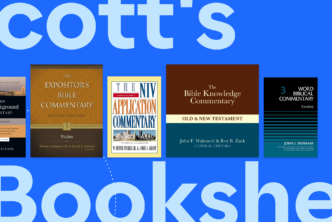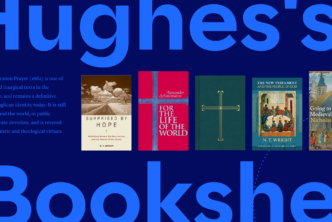
This is the final post in our series of 50 books everybody needs to read about the New Testament. (The careful reader of all five posts will note that the book recommendations don’t add up to 50. It was more of a general target.) Our category for this last set of recommendations is quite broad: Scripture, Hermeneutics, and Ethics. These books all deal with how to approach or interpret Scripture.
Let’s start with D. A. Carson’s Exegetical Fallacies. Carson, a master interpreter of Scripture, offers sage counsel on how to avoid logical missteps when reading the New Testament, particularly in Greek. Seminary students should all read this book early on in their studies.
When it comes to the broader activity of studying Scripture as the Word of God, I cannot praise highly enough Clayton Croy’s Prima Scriptura: An Introduction to New Testament Interpretation. This work shines, especially in the area of theological and philosophical hermeneutics and the question of how to find meaning in the text. Croy does not dwell on the nitty gritty of exegetical method, but he does supply a series of helpful indexes that offer some examples and samples.
In a similar vein, I want to recommend Joel Green’s Seized by Truth: Reading the Bible as Scripture. This is the perfect kind of book for getting seminary and college students to think about what it means to see Scripture as divine revelation and self-communication.
One of the most difficult and debated topics in hermeneutics and the ethics of Scripture is the matter of women in ministry. I am obviously showing a one-sided bias here, but I must commend Discovering Biblical Equality: Complementarity Without Hierarchy, edited by Ronald Pierce and Rebecca Groothuis. Many of the exegetical and hermeneutical arguments that see women as restricted from roles of authority and instruction in the church are based on poor logic and slim evidence. Texts that many tout as presenting a “clear teaching” forbidding women from ministry leadership are far more difficult and complex than it may seem from the renderings of many English translations. Several essays in this book clarify historical and exegetical conundrums. Not all essays are equally convincing, but the perspectives offered in this book need to be carefully weighed and evaluated by all interested in the subject of women and ministry.
If you want to get into the method of the practice of sound exegesis, there are many fine textbooks (Blomberg, Fee, Osborne, etc). But I have found A Handbook to the Exegesis of the New Testament, edited by Stanley E. Porter, to be particularly helpful. In over 600 pages (from almost 20 contributors) this volume covers a wide variety of exegetical tools and perspectives: Greek grammar study, genre analysis, source/form/redaction criticism, discourse analysis, rhetorical and narrative criticism, literary criticism, ideological criticism, social-scientific criticism, canonical criticism, study of Hellenistic philosophy, Jewish backgrounds, Roman Imperial context, and application of biblical texts. The contributors are all experts in their respective areas.
And for my part, it is fitting to end this post (and the series as a whole) with N. T. Wright and his Scripture and the Authority of God. This book offers a helpful perspective on the nature and authority of Scripture. One of the key ideas in the book presents Scripture as a worldview story, and it is that story (from God’s perspective, narrating his action and mission) which shapes the Christian life and vocation of the Church.
So, that’s my 50(ish) books that I often recommend to students who want to study the New Testament. Read and enjoy!




